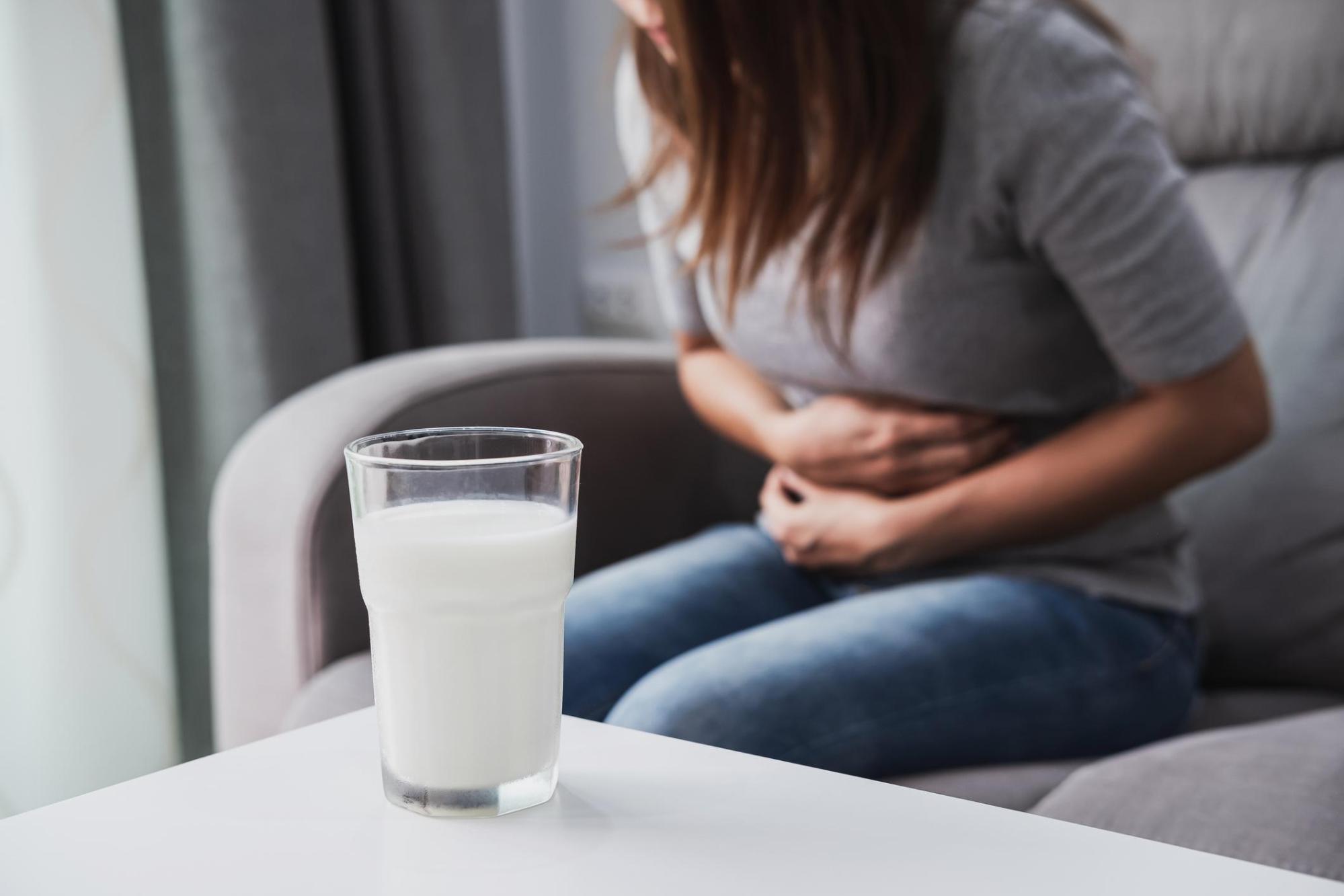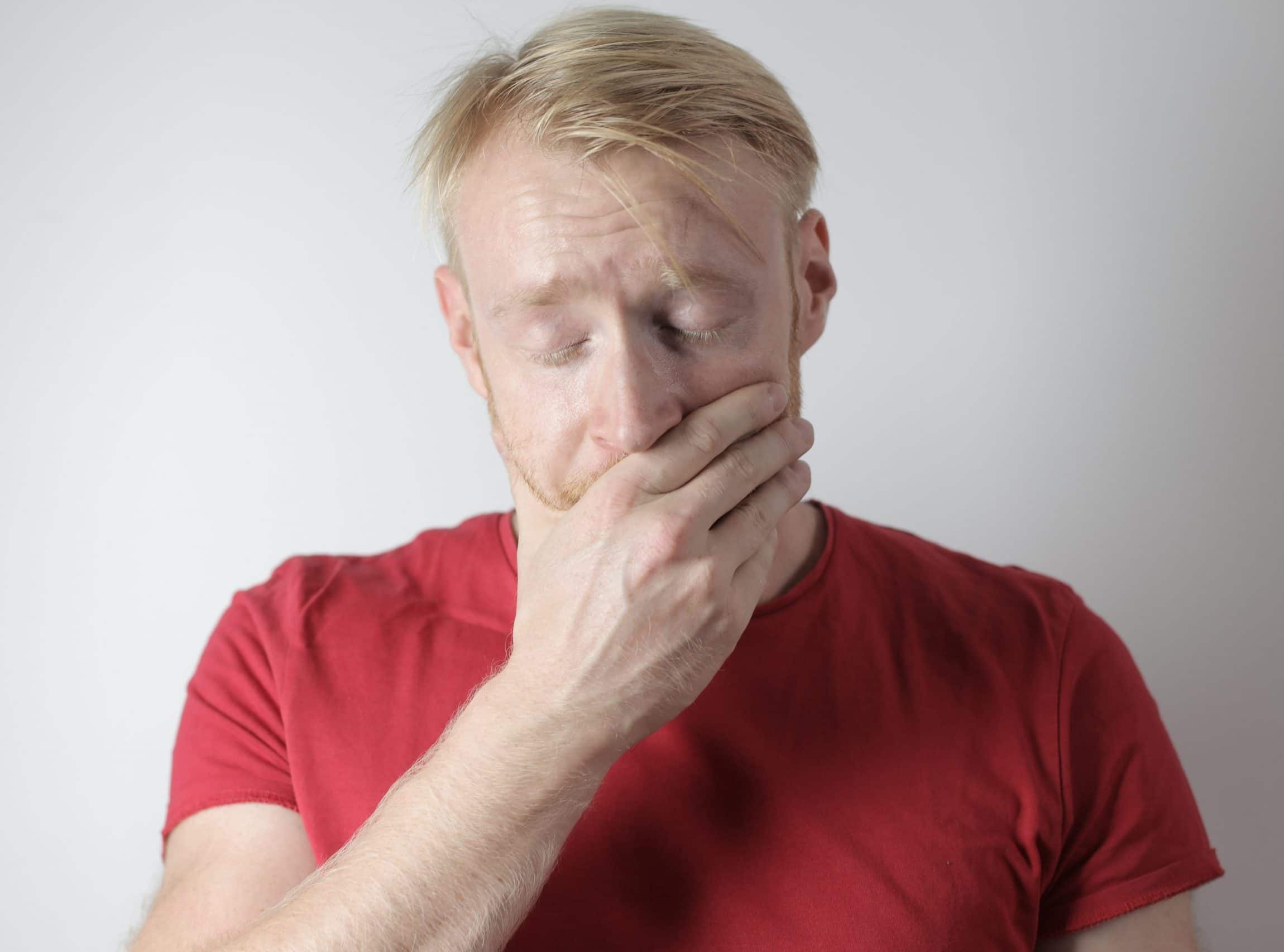

FAQs
Why Do I Have To Push Hard To Fart
Modified: September 23, 2023
Find answers to your general questions about farting and understand why you sometimes have to push harder to pass gas.
(Many of the links in this article redirect to a specific reviewed product. Your purchase of these products through affiliate links helps to generate commission for Under-tec.com, at no extra cost. Learn more)
Table of Contents
- Introduction
- What is flatulence?
- The process of farting
- Reasons for having to push hard to fart
- Excessive gas buildup
- Constipation
- Intestinal blockage
- Dietary factors
- Medications and medical conditions
- How to relieve difficulty in farting
- Exercise and physical activity
- Dietary changes
- Over-the-counter remedies
- Seeking medical advice
- Conclusion
Introduction
Flatulence, commonly known as passing gas or farting, is a natural bodily function that occurs when gas accumulates in the digestive system and is expelled through the rectum. While farting is a normal and essential part of the digestive process, there are times when it can feel difficult or require more effort than usual to release gas from the body.
In this article, we will explore the reasons why some people may experience the need to push hard to fart. We will delve into the various factors that can contribute to this discomfort and provide insights into how to relieve difficulty in passing gas.
It is important to note that occasional difficulty in farting is usually not a cause for concern and can be attributed to temporary factors such as diet or lifestyle. However, if this issue persists or is accompanied by other symptoms, it is advisable to consult a healthcare professional for a proper diagnosis and treatment.
Understanding the process of farting and the underlying reasons for having to exert more pressure can help individuals manage their symptoms and promote better digestive health.
What is flatulence?
Flatulence is the release of excess gas from the digestive tract through the rectum. It is a normal bodily function that occurs as a result of the digestion and breakdown of food in the stomach and intestines.
When we eat or drink, we also ingest air, which can add to the gas in our digestive system. Additionally, certain foods and beverages, particularly those high in fiber and carbohydrates, can produce more gas during the digestive process.
Gas in the digestive system is primarily composed of nitrogen, oxygen, carbon dioxide, hydrogen, and small amounts of methane. These gases are byproducts of the breakdown of food by the bacteria in our gut and the swallowing of air.
While flatulence is generally harmless and a natural part of digestion, excessive or persistent gas can lead to discomfort, bloating, and a feeling of pressure in the abdomen. It can also cause embarrassment or social awkwardness, particularly in situations where one needs to suppress or control the release of gas.
Understanding the process of farting and the various factors that can contribute to excessive gas buildup can help individuals manage and reduce their symptoms. In the following sections, we will explore the reasons why some individuals may need to exert more effort to fart and discuss effective strategies for relieving this discomfort.
The process of farting
Farting, also known as flatulence, is the result of the release of excess gas from the digestive system. The process of farting involves several steps:
- Ingestion: When we eat or drink, we also swallow small amounts of air. This air can travel down to the digestive system and contribute to the gas in our bodies.
- Digestion and fermentation: Once food reaches the stomach, it undergoes the process of digestion, breaking down into smaller particles. From the stomach, the partially digested food moves into the small intestine, where it further breaks down and nutrients are absorbed. During this process, bacteria in the gut begin to ferment the carbohydrates that were not fully digested, producing gases such as carbon dioxide, hydrogen, and methane.
- Gas buildup: As the fermentation process continues, the gases produced by the bacteria start to accumulate in the digestive system. These gases can cause the abdomen to feel bloated and distended.
- Rectal release: When the pressure in the digestive system becomes too high, the body releases the excess gas through the rectum. This is what we commonly refer to as farting.
Farting is a normal bodily function that helps to relieve the pressure and discomfort caused by the buildup of gas in the digestive system. The average person passes gas between 10 and 20 times a day, with each fart containing a mixture of gases and a distinct odor that is unique to individuals.
Now that we have a better understanding of the process of farting, let’s explore the reasons why some individuals may experience difficulty in passing gas and the factors that contribute to the need to push hard to fart.
Reasons for having to push hard to fart
Experiencing the need to push hard to fart can be uncomfortable and frustrating. While occasional difficulty in passing gas is usually not a cause for concern, persistent or chronic difficulty may indicate an underlying issue. Here are some common reasons why individuals may have to exert more effort to fart:
- Excessive gas buildup: Sometimes, an excessive accumulation of gas in the digestive system can make it harder to release gas naturally. This can occur due to factors such as swallowing air while eating or drinking, consuming gas-forming foods, or a rapid increase in the population of gas-producing bacteria in the gut.
- Constipation: When stool builds up in the colon and rectum, it can obstruct the natural passage of gas. Constipation can be caused by a variety of factors, including a lack of dietary fiber, dehydration, certain medications, or underlying medical conditions.
- Intestinal blockage: In some cases, an obstruction in the intestines can prevent the normal passage of gas. This can be caused by conditions such as intestinal adhesions, tumors, or strictures.
- Dietary factors: Certain foods and beverages can increase the production of gas in the digestive system, leading to a feeling of bloating and the need to push hard to fart. Common culprits include carbonated drinks, cruciferous vegetables (such as broccoli and cabbage), legumes, and high-fiber foods.
- Medications and medical conditions: Certain medications, such as opioids or anticholinergics, can slow down intestinal motility and contribute to difficulty in passing gas. In addition, underlying medical conditions such as irritable bowel syndrome (IBS), gastrointestinal infections, or gastrointestinal motility disorders can also affect the normal passage of gas.
It is important to note that these factors can vary from person to person, and it may take some trial and error to identify the specific cause of difficulty in farting. If you consistently experience this issue or if it is accompanied by severe pain, changes in bowel habits, or other concerning symptoms, it is recommended to consult a healthcare professional for proper evaluation and diagnosis.
In the next section, we will explore strategies and lifestyle changes that can help relieve difficulty in farting and promote better digestive health.
Excessive gas buildup
Excessive gas buildup in the digestive system can be a common cause of needing to push hard to fart. This can happen due to various factors:
- Swallowing air: When we eat or drink, we also inadvertently swallow small amounts of air. This can especially happen when consuming food or drinks too quickly, using straws, or chewing gum. The swallowed air can accumulate in the digestive system and contribute to excessive gas.
- Gas-forming foods: Some foods are known to produce more gas during digestion. These include carbonated beverages, beans, lentils, certain vegetables like broccoli and cabbage, and high-fiber foods. When these foods are broken down by the bacteria in the gut, they can release gases like methane, carbon dioxide, and hydrogen, leading to increased gas buildup.
- Imbalance in gut bacteria: The gut is home to trillions of bacteria that help in the digestion process. However, an overgrowth or imbalance in certain types of bacteria can result in increased gas production. This can happen due to factors like a diet high in sugar or refined carbohydrates, stress, antibiotic use, or underlying medical conditions.
To reduce excessive gas buildup and alleviate the need to push hard to fart, there are several strategies to consider:
- Eat and drink slowly: Taking your time while eating and drinking can minimize the amount of air you swallow and reduce the chances of excessive gas buildup.
- Avoid gas-forming foods: Pay attention to how your body reacts to certain foods and try to limit or avoid those that tend to produce more gas. Keeping a food diary can help identify specific triggers.
- Include probiotics: Probiotics are beneficial bacteria that can help maintain a healthy balance in the gut. Consuming foods or supplements containing probiotics, such as yogurt or fermented foods, may help regulate gut bacteria and reduce excessive gas production.
- Manage stress: Stress can affect digestion and contribute to increased gas production. Engaging in stress-reducing activities, such as exercise, meditation, or deep breathing exercises, can help promote better digestive health.
It is important to note that while these strategies may provide relief for some individuals, everyone’s body is unique, and it may require some experimentation to find what works best for you. If excessive gas buildup or the need to push hard to fart persists or is accompanied by other concerning symptoms, it is advisable to consult a healthcare professional for further evaluation and guidance.
Constipation
Constipation is another common reason for experiencing difficulty in farting. It refers to infrequent bowel movements or difficulty passing stools. When stool builds up in the colon and rectum, it can create a blockage that obstructs the natural passage of gas. Several factors can contribute to constipation:
- Lack of dietary fiber: A diet low in fiber can lead to constipation as fiber adds bulk to the stool and helps regulate bowel movements. Insufficient intake of fruits, vegetables, whole grains, and legumes can contribute to difficulty in passing gas.
- Dehydration: Inadequate water intake can lead to dehydration, which can cause harder and drier stools. This can make it more challenging for gas to pass through the digestive system.
- Medications: Certain medications, such as opioids, antacids containing calcium or aluminum, and some antidepressants, can slow down bowel movements and contribute to constipation.
- Underlying medical conditions: Chronic conditions like irritable bowel syndrome (IBS), hypothyroidism, diabetes, and neurological disorders can affect the normal functioning of the intestines and lead to constipation.
To relieve constipation and facilitate the passing of gas, the following strategies can be helpful:
- Increase dietary fiber intake: Consuming a diet rich in fiber can help regulate bowel movements and soften the stool. Include a variety of fruits, vegetables, whole grains, and legumes in your diet.
- Stay hydrated: Drinking an adequate amount of water can soften the stool and make it easier to pass. Aim for at least eight glasses of water per day.
- Exercise regularly: Engaging in regular physical activity can stimulate bowel movements and promote better digestive function.
- Consider over-the-counter remedies: Fiber supplements or laxatives may help alleviate constipation. However, it is essential to consult a healthcare professional or pharmacist before using these remedies to determine the most appropriate option for your specific situation.
If constipation persists or is accompanied by severe abdominal pain, blood in the stool, or other concerning symptoms, it is recommended to seek medical advice for proper evaluation and treatment.
Intestinal blockage
In some cases, difficulty in farting may be attributed to an intestinal blockage, which prevents the normal passage of gas through the digestive system. This obstruction can occur for several reasons:
- Intestinal adhesions: Adhesions are bands of scar tissue that can form between organs or within the intestines. These adhesions can cause sections of the intestines to stick together, leading to a partial or complete blockage that interferes with the movement of gas.
- Tumors: Cancerous or non-cancerous growths can develop in the intestines, causing a blockage that obstructs the passage of gas. These tumors may be located in the colon, rectum, or small intestine.
- Intestinal strictures: Strictures refer to narrow sections of the intestines, which can result from inflammation, scar tissue, or other gastrointestinal conditions such as Crohn’s disease or ulcerative colitis. These strictures can impede the normal flow of gas.
It is important to note that intestinal blockages are typically associated with additional symptoms, which may include severe abdominal pain, nausea, vomiting, bloating, and changes in bowel movements. If you are experiencing these symptoms along with difficulty in passing gas, it is crucial to seek immediate medical attention as an intestinal blockage may require prompt intervention.
A healthcare professional will conduct a thorough evaluation, which may involve physical examinations, imaging tests such as X-rays or CT scans, and other diagnostic procedures. Treatment options for intestinal blockage depend on the underlying cause and may include medication, surgery, or other interventions to relieve the obstruction and restore normal bowel function.
If you suspect you have an intestinal blockage or experience persistent difficulty in passing gas, it is essential to consult a healthcare professional for a proper diagnosis and appropriate treatment.
Dietary factors
Diet plays a vital role in gas production and can contribute to difficulty in farting. Certain dietary factors can increase gas buildup in the digestive system, leading to the need to push hard to fart. Here are some common dietary factors to consider:
- Gas-forming foods: Foods that tend to produce more gas during digestion include beans, lentils, broccoli, cabbage, onions, carbonated beverages, and certain fruits like apples and pears. These foods contain carbohydrates that are not fully digested by the body, which can lead to the production of excess gas.
- Fatty foods: High-fat foods, such as fried foods, can delay stomach emptying and slow down the digestion process. This delay can contribute to increased gas production and difficulty in passing gas.
- Lactose intolerance: Individuals who are lactose intolerant have difficulty digesting lactose, a sugar found in dairy products. Consuming lactose-containing foods can result in gas and other digestive symptoms.
- Sugar substitutes: Artificial sweeteners like sorbitol, mannitol, and xylitol are commonly found in sugar-free products. These sweeteners can be difficult to digest and can lead to bloating and gas buildup.
To alleviate the difficulty in farting caused by dietary factors, you can consider implementing the following strategies:
- Identify and avoid trigger foods: Keep a food diary to track your diet and note any foods that consistently cause gas or discomfort. Adjust your diet by avoiding or minimizing the consumption of those trigger foods.
- Chew your food thoroughly: Properly chewing your food can aid in the digestion process and reduce the production of excess gas. Take your time and eat slowly to allow for better breakdown and digestion.
- Consider enzyme supplements: Enzyme supplements, such as lactase, can assist in the digestion of specific problem substances like lactose. Consult with a healthcare professional to determine if enzyme supplements are suitable for your needs.
- Try herbal remedies: Certain herbs like peppermint or ginger have been traditionally used to help relieve bloating and gas. Consult with a healthcare professional to determine the appropriate herbal remedies for your situation.
It’s important to note that responses to dietary factors may vary from person to person. Therefore, it may be helpful to work with a healthcare professional or registered dietitian to develop a personalized diet plan that addresses your specific needs and digestive concerns.
Medications and medical conditions
Medications and underlying medical conditions can significantly impact the digestive system and contribute to difficulty in farting. Here are some factors to consider:
- Medications: Certain medications can affect the normal functioning of the digestive system, leading to decreased motility and gas retention. Opioids, anticholinergic medications, and some antidepressants are known to slow down bowel movements and contribute to constipation and difficulty in passing gas.
- Medical conditions: Various medical conditions can interfere with normal gastrointestinal function and contribute to difficulty in farting. Some of these conditions include:
- Irritable bowel syndrome (IBS): IBS can cause disturbances in bowel function, leading to symptoms such as bloating, gas, and altered bowel habits. These changes can make it more challenging to pass gas comfortably.
- Gastrointestinal infections: Infections caused by bacteria, viruses, or parasites can lead to inflammation and disruption of normal digestive function, resulting in increased gas buildup.
- Gastrointestinal motility disorders: Conditions like gastroparesis or intestinal dysmotility can affect the movement of food and gas through the digestive tract, leading to trapped gas and difficulty in passing gas.
- Inflammatory bowel disease (IBD): Inflammatory bowel diseases such as Crohn’s disease or ulcerative colitis can cause inflammation and damage to the intestinal walls. These conditions can lead to structural abnormalities and impaired gas passage.
If you are experiencing difficulty in farting that is related to medications or underlying medical conditions, it is essential to consult with a healthcare professional. They can assess your specific situation, review your medications, and address any potential underlying medical conditions.
Treatment options may involve adjusting or changing medications, managing the underlying medical condition, or prescribing specific therapies targeted at improving bowel function.
Remember, it is crucial to work closely with a healthcare professional to properly diagnose and manage any medical conditions that may contribute to difficulty in farting.
How to relieve difficulty in farting
If you are experiencing difficulty in farting and the associated discomfort, there are several strategies and lifestyle changes that can help alleviate the symptoms. Here are some effective ways to relieve difficulty in passing gas:
- Exercise and physical activity: Engaging in regular exercise and staying physically active can stimulate bowel movements and improve overall digestive function. Activities like walking, jogging, yoga, or cycling can help relieve gas buildup and promote better gas passage.
- Dietary changes: Adjusting your diet can play a significant role in relieving difficulty in farting. You can try the following dietary changes:
- Include fiber-rich foods: Gradually increase your intake of fiber-rich foods, such as fruits, vegetables, whole grains, and legumes. Fiber adds bulk to the stool and promotes regular bowel movements, aiding in the passage of gas.
- Avoid gas-forming foods: Limit or avoid foods that tend to produce excess gas, such as beans, lentils, broccoli, cabbage, and carbonated beverages.
- Stay hydrated: Drink an adequate amount of water throughout the day to keep your body hydrated and support proper digestion.
- Over-the-counter remedies: There are several over-the-counter remedies available to alleviate gas and bloating. These include digestive enzymes, simethicone, activated charcoal, and probiotics. Consultation with a healthcare professional or pharmacist can help determine the most suitable option for your specific needs.
- Seeking medical advice: If your difficulty in farting persists or is accompanied by severe pain, changes in bowel habits, or other concerning symptoms, it is advisable to consult a healthcare professional. They can evaluate your condition and provide appropriate guidance or suggest further tests if needed.
It is important to remember that everyone’s body is unique, and what works for one person may not work for another. Some trial and error may be necessary to find the most effective strategies for relieving difficulty in farting in your specific case.
Additionally, maintaining a healthy lifestyle, managing stress levels, and practicing good eating habits can contribute to better digestion and overall digestive health.
If you are unsure about the best approach for your specific situation, consulting with a healthcare professional or registered dietitian can provide you with personalized guidance and support.
Exercise and physical activity
Engaging in regular exercise and physical activity can be an effective way to relieve difficulty in farting. Exercise helps stimulate bowel movements and promotes better digestive function, which can alleviate gas buildup and aid in the passage of gas.
Here are some ways in which exercise can help relieve difficulty in farting:
- Bowel movement stimulation: Exercise helps stimulate the muscles in the abdomen and intestines, promoting bowel movements. Physical activity can increase the contractions of the intestinal muscles, known as peristalsis, which aids in the movement of gas and waste through the digestive system.
- Reduced constipation risk: Regular exercise can help prevent or relieve constipation, a common cause of difficulty in farting. It improves bowel regularity and promotes healthy digestion, reducing the likelihood of fecal matter building up in the intestines and obstructing the passage of gas.
- Reduced abdominal bloating: Bloating is often associated with difficulty in farting. Exercise can help reduce abdominal bloating by increasing blood flow to the intestines, promoting more efficient digestion and gas passage.
- Stress reduction: Stress can impact digestion and contribute to gas retention. Engaging in physical activity, such as aerobic exercises or yoga, can help reduce stress levels and promote relaxation, which in turn can ease digestive discomfort and improve the ability to pass gas.
It is important to tailor your exercise routine to your fitness level and capabilities. Here are some types of exercises that can be beneficial:
- Aerobic exercises: Activities like walking, jogging, swimming, or cycling increase heart rate and promote overall cardiovascular health. These exercises help stimulate digestion and encourage bowel movements.
- Yoga: Certain yoga poses, such as twists and forward folds, can specifically target the abdominal area and promote better digestion. Practicing yoga regularly can help relieve gas buildup and improve overall gastrointestinal function.
- Core exercises: Strengthening the core muscles can improve abdominal muscle tone and support proper bowel function. Exercises like planks, crunches, or Pilates can help strengthen the core muscles and alleviate digestive issues.
Remember to start slowly and gradually increase the intensity and duration of your exercise routine. If you have any underlying health conditions or concerns, it is advisable to consult with a healthcare professional before starting a new exercise program.
By incorporating regular exercise and physical activity into your lifestyle, you can promote better digestive health, relieve difficulty in farting, and improve overall well-being.
Dietary changes
One of the key strategies for relieving difficulty in farting is making dietary changes. By adjusting your diet, you can minimize gas production and promote better digestion, making it easier to pass gas. Here are some dietary changes that can help alleviate the symptoms:
- Increase dietary fiber: Consuming an adequate amount of dietary fiber is crucial for healthy digestion. Fiber adds bulk to the stool, promotes regular bowel movements, and prevents constipation, which can contribute to difficulty in passing gas. Include foods such as fruits, vegetables, whole grains, and legumes in your diet to increase your fiber intake.
- Avoid gas-forming foods: Certain foods are known to produce more gas during digestion. These include beans, lentils, broccoli, cabbage, onions, carbonated beverages, and some fruits like apples and pears. Limit or avoid these foods to minimize gas buildup and reduce the need to push hard to fart.
- Chew your food thoroughly: Properly chewing your food aids in the digestion process and reduces the potential for gas formation. Take your time while eating and chew each bite thoroughly before swallowing to aid in the breakdown of food and ease digestion.
- Identify food sensitivities or intolerances: Certain individuals may have specific food sensitivities or intolerances that can contribute to excess gas production and difficulty in farting. Pay attention to any foods that consistently cause discomfort or excessive gas. Keeping a food diary can help you identify potential triggers and make informed choices about your diet.
- Stay hydrated: Drinking an adequate amount of water is essential for proper digestion. Water helps soften the stool, ease bowel movements, and prevent constipation. Aim to drink at least eight glasses of water per day to support healthy digestion and reduce difficulty in passing gas.
It is important to note that dietary changes may take some time to show significant effects. Be patient and give your body time to adjust to the new dietary habits. If you have any specific dietary concerns or conditions, it is advised to consult with a registered dietitian or healthcare professional who can provide personalized guidance.
Remember to listen to your body and pay attention to how certain foods make you feel. Everyone’s digestive system is unique, and it may require some experimentation to identify your individual triggers and optimize your diet for better gas management.
By implementing these dietary changes, you can support a healthier digestive system, reduce gas buildup, and alleviate the discomfort associated with difficulty in farting.
Over-the-counter remedies
Over-the-counter remedies can be helpful in relieving difficulty in farting and reducing excessive gas. These remedies can provide relief by breaking up gas bubbles, promoting gas expulsion, or aiding digestion. Here are some commonly used over-the-counter options:
- Digestive enzymes: Digestive enzyme supplements, such as lactase or alpha-galactosidase, can help break down complex carbohydrates that are difficult to digest. These enzymes can be especially beneficial for individuals who have difficulty digesting lactose or gas-producing foods like beans and cruciferous vegetables.
- Simethicone: Simethicone is an anti-foaming agent that helps to reduce the surface tension of gas bubbles in the digestive system. This makes it easier for the gas to combine and pass out of the body, providing relief from bloating and discomfort associated with excessive gas buildup.
- Activated charcoal: Activated charcoal is known for its ability to absorb gases and toxins in the intestines. Taking activated charcoal supplements may help alleviate excess gas and reduce bloating. However, it is important to note that activated charcoal can interfere with the absorption of certain medications, so it should be taken at least two hours before or after medication consumption.
- Probiotics: Probiotics are beneficial bacteria that can support a healthy gut and aid in digestion. They can help regulate gut flora and reduce gas production. Probiotic supplements or consuming foods and beverages that are rich in probiotics, such as yogurt or fermented foods, may help alleviate gas and promote better digestive function.
It is crucial to consult with a healthcare professional or pharmacist before using over-the-counter remedies, especially if you have any underlying health conditions or take other medications. They can provide guidance on the appropriate dosage, potential side effects, and any contraindications or interactions.
While over-the-counter remedies can provide temporary relief, it is also important to address the underlying causes of excessive gas buildup. Making dietary changes, incorporating regular exercise, and managing stress levels can help manage gas production in the long term.
If you experience persistent difficulty in farting or if your symptoms worsen despite using over-the-counter remedies, it is recommended to seek medical advice for further evaluation and guidance.
Seeking medical advice
If you are experiencing persistent difficulty in farting or if your symptoms are severe and affecting your quality of life, it is important to seek medical advice. A healthcare professional can evaluate your condition, determine the underlying cause, and provide appropriate guidance and treatment options.
Here are some situations where seeking medical advice is recommended:
- Severe or worsening symptoms: If you are experiencing severe abdominal pain, bloating, vomiting, or changes in bowel movements alongside difficulty in farting, it is crucial to seek immediate medical attention. These symptoms could indicate a more serious underlying condition that requires prompt medical intervention.
- Chronic or persistent symptoms: If your difficulty in farting persists for an extended period, despite trying various self-care measures, it is advisable to consult with a healthcare professional. Chronic symptoms could be indicative of an underlying medical condition that requires medical evaluation and management.
- Associated medical conditions: If you have been diagnosed with a pre-existing condition that affects the digestive system, such as inflammatory bowel disease (IBD) or irritable bowel syndrome (IBS), it is important to discuss your symptoms with a healthcare professional. They can provide appropriate guidance specific to your condition and help manage your symptoms effectively.
- Medications and side effects: If you suspect that your difficulty in farting is related to specific medications you are taking, it is advisable to consult with your healthcare professional. They can review your medications and discuss possible alternatives or adjustments to manage your symptoms more effectively.
- Overall concerns and questions: If you have any concerns, questions, or uncertainties about your symptoms or overall digestive health, it is always wise to seek medical advice. A healthcare professional can provide personalized guidance based on your specific situation and help address any underlying concerns.
A healthcare professional will conduct a comprehensive evaluation, which may include a review of your medical history, physical examination, and possibly additional tests or diagnostic procedures. Based on the findings, they can provide a proper diagnosis and recommend appropriate treatment options or lifestyle modifications to relieve your difficulty in farting.
Remember, it is important to communicate openly and honestly with your healthcare professional about your symptoms and concerns to ensure an accurate diagnosis and effective management of your condition.
Conclusion
Difficulty in farting can be uncomfortable and concerning, but it is often a temporary issue that can be relieved through various strategies. Understanding the factors that contribute to this difficulty, such as excessive gas buildup, constipation, intestinal blockage, dietary factors, medications, and medical conditions, is key to finding effective solutions.
Implementing lifestyle changes like regular exercise, dietary modifications, and staying hydrated can help alleviate symptoms and promote better digestive health. Over-the-counter remedies, such as digestive enzymes, simethicone, activated charcoal, or probiotics, can provide temporary relief from excessive gas build-up.
However, if difficulty in farting persists, is accompanied by severe symptoms, or is impacting your quality of life, it is important to seek medical advice. A healthcare professional can conduct a thorough evaluation, diagnose any underlying conditions, and provide appropriate treatment options.
Remember, everyone’s body is unique, and finding what works best for you may require some trial and error. Listening to your body, maintaining a balanced lifestyle, and seeking professional guidance when needed are key to managing difficulty in farting and maintaining optimal digestive health.










